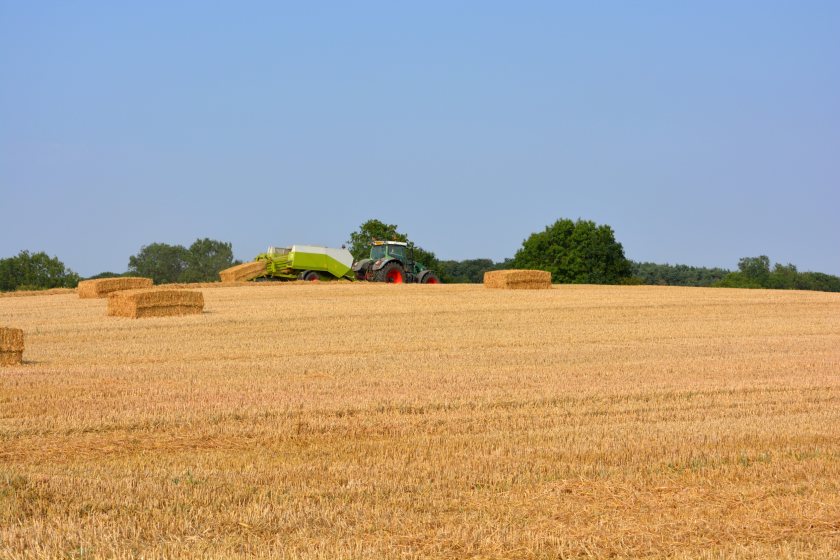Arable farmers facing 'more than 50% drop' in profits this year

Arable farmers are facing more than a 50 percent drop in profits this year amid lower commodity prices and a fall in BPS payments.
Profits may recover slightly for harvest 2024, but this will still be well down on levels seen in 2021 and 2022, according to new modelling work by Strutt & Parker.
The research shows that the net margin for an average UK arable farm for harvest 2023 is expected to be £183/ha, a steep fall from £568/ha in 2022.
Strutt & Parker blames inflationary pressures on input costs at a time when grain prices have been falling.
The 2023 net margin for a higher-performing farm achieving higher yields and with lower fixed costs is forecast to be £364/ha.
However, this will still be 52 percent lower than in 2022 and 42 percent lower than in 2021.
Andrew Atkinson, farm consultant with Strutt & Parker, warned that this year's harvest could be one of the worst financially.
"Harvest 2022 was a profitable year for arable growers who purchased the bulk of their inputs before the massive increases in input costs and benefited from the significant increases in grain prices.
"But the huge rise in fertiliser prices which followed, along with declining commodity prices over recent months, means harvest 2023 could end up being one of the worst financially for a number of years."
Mr Atkinson said it was also "worrying" to see that while profits were forecast to rise a little in 2024, they were likely to be significantly down on where they were in 2021.
He added: "Volatility is not new to farmers, but the extent of it really has been unprecedented over the past 24 months and it is this year where the pain will be felt on many arable farms."
Not only did fertiliser prices skyrocket to about £1,000/t in spring 2022, but feed wheat prices have dropped by nearly £150/t compared with summer 2022 levels.
And oilseed rape prices have plummeted from over £800/t last year to around £350/t currently.
"Arable farmers will be feeling like they have been on a rollercoaster and that looks set to continue," Mr Atkinson said.
"The forecast for 2024 is better than this season, but still worryingly low, which puts pressure on businesses to look for areas where they can improve financial and technical performance."








